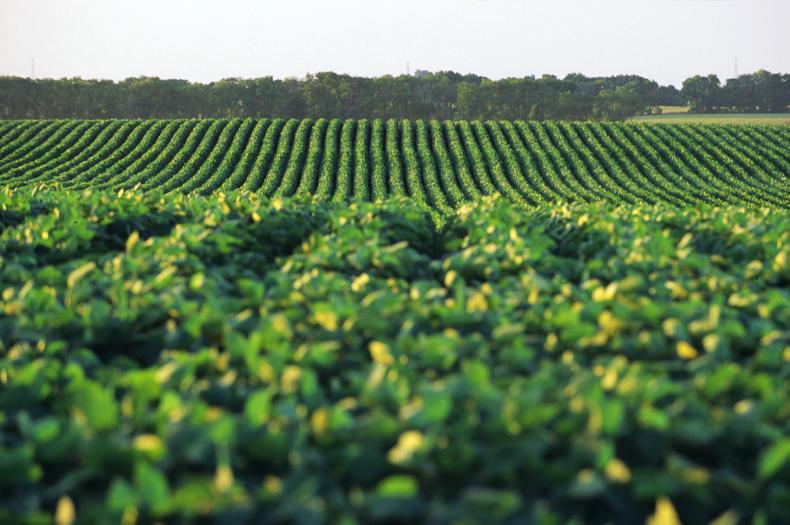With the world teetering on the verge of an unprecedented trade war, an unlikely saviour has emerged to soothe simmering tensions between old allies Europe and the US. This saviour, of course, is none other than the humble soya bean, which has found itself the unlikely antidote to a trade spat created entirely by US President Donald Trump.
Following crunch talks held in Washington this week with European Commission President Jean-Claude Juncker, Trump announced that the EU had agreed to buy billions of dollars worth of extra US exports, primarily soya beans and natural gas.
“European Union representatives told me they would start buying soybeans from our great farmers immediately,” tweeted Trump.
The US President added that the EU and US, which have a $1tn bilateral trade relationship, had struck a deal to work towards zero trade barriers, which Trump proclaimed a “new phase” in EU-US relations.
“We had a big day, very big. We agreed today, first of all, to work together toward zero tariffs, zero non-tariff barriers and zero subsidies on non-auto industrial goods,” said Trump.
Soya bean politics
For Trump, highlighting the soya bean angle as a big win is a clear play to his voter base in rural America. US farmers have found themselves a soft target in the escalating global trade war we’ve seen kick off in 2018. Earlier this month, China, the world’s largest buyer of agricultural commodities, slapped 25% tariffs on imports of US products such as soya beans, maize corn and pork.
In a bid to spare US farmers some of the pain from these tariffs, the US President this week announced a $12bn package of direct supports, which will include direct payments to farmers producing commodities such as soya beans, maize, and wheat, as well as dairy and pig farmers.
However, when you look past the theatrics and the tweets, President Trump is trying to spare US farmers from a trade crisis he himself has largely created. Since taking office, Trump has been determined to shake up the global trade system he believes has served the US so poorly. The US President has done this, however, in the only way he seems to know how – by smashing a wrecking ball at it.
Trump started the global trade war when he first slapped 10% tariffs on imports of steel and aluminium from key allies such as Mexico, Canada and the EU. He followed this up by targeting $234bn worth of goods imported from China with tariffs, and has promised more unless China bends to more favourable trade terms for the US.
As such, Trump’s claim that this week’s deal with the EU to buy more soya beans from US farmers is a significant victory rings hollow. For the last number of years, China has continued to import higher and higher amounts of US soya beans, which has driven prices and allowed US farmers to plant record acreages of the protein crop.
But with Beijing imposing retaliatory tariffs on imports of US soya beans, Chinese importers have started to move away from the US and are now looking to South America, and countries like Brazil, as their preferential suppliers.
Instead of going to China from now on, US soya beans are likely to end being shipped to ports in Europe. And while Europe is a net importer of protein crops, its import needs will never match China’s seemingly unquenchable appetite for soya beans.
Europe’s hypocrisy
From a European perspective, any cooling in the recent tensions with the US is to be welcomed. Many viewed this week’s agreement between the EU and US as a significant victory for European President Jean-Claude Juncker, having secured a détente in the recent war of words.
However, many EU farmers will be left scratching their heads when they see the President of the European Commission agreeing to import billions of dollars worth of GM soya beans, a technology that European farmers are banned from using, just to appease President Trump.
The agreement will be even harder for European farmers to stomach following this week’s ruling by the European Court of Justice (ECJ) that gene-edited organisms should be subject to the same restrictions as conventional genetically modified organisms (GMOs).
This means that new plant breeding techniques (NPBT) such as Crispr Cas9 will be subject to the same obligations laid down by the GMO directive.






 This is a subscriber-only article
This is a subscriber-only article










SHARING OPTIONS: